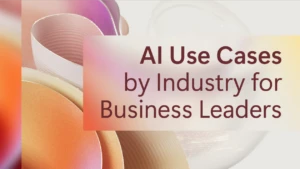
Government digital transformation made real
Worldwide, many government institutions are embracing digital technology to achieve better efficiency and transparency. Simultaneously, the government workforce is quickly transforming itself, with government workers around the world at various levels of digital literacy and digital government maturity.
As a growing number of governments at all levels make the digital transformation, our diverse public-sector partner network is stepping up by delivering impressive solutions that help governments dramatically improve their operations and create deeper engagement with their citizens. At the 2016 Microsoft Worldwide Partner Conference in Toronto on July 10–14, our government partners will have the opportunity to network with a range of public sector partners to find out about the emerging needs of governments and the innovations they are actually adopting.
A great example of the innovation that’s possible is the Agricultural Farmland Information System that Microsoft partner SoftBank Technology implemented for the Japanese government. Selected as the 2016 WPC Government Partner of the Year, SoftBank developed a solution that is helping Japan increase agricultural production as part of the country’s broader strategy to double farm income and agricultural exports over the next decade . To improve agricultural production, the government wanted to set up farm leasing opportunities, yet there was no easy way for users to determine how agricultural land was being used. SoftBank solved this problem by setting up a central, cloud-based land registry based on Microsoft Azure. The solution, which also incorporates Microsoft Dynamics CRM and Microsoft Office 365, offers government officials and citizens an easy way to obtain the information they need, spurring new farmers and companies to enter the agricultural market.
The SoftBank solution is a terrific example of how digital technology can help governments operate more efficiently and transparently—and ultimately boost the health of their economies. Yet it’s important to note that we are just at the beginning. A recent Gartner survey of government chief information officers revealed that government digital transformation is still in an embryonic stage of maturity. Today, transforming government operational models is at the top of the agenda for many elected leaders and public officials. But, in some cases, shortages of skilled workers and rigid organizational cultures are slowing this transformation.
As more governments consider replacing their legacy on-premises systems, our partners not only must provide the right digital tools, but also the expertise needed to help agencies transform their organizational cultures. WPC creates a forum for these critical discussions to take place. It’s also a great time for our partners to network with their peers, identify ways to collaborate, and define their role within the enormous shift that’s taking place.
If you attend WPC, don’t miss our session, “Digital government transformation made real,” which will focus on what digital transformation in the public sector truly means for government partners and customers—and what factors need to be considered to make the transition a success. During the session, we plan to discuss our focus on government digital transformation, and the importance of looking at industry from a vertical perspective such as urban mobility, natural resources, and citizen services. We will also talk about Gartner’s digital government maturity model and how it can help partners develop more scalable and profitable solutions. We hope to see you there!




